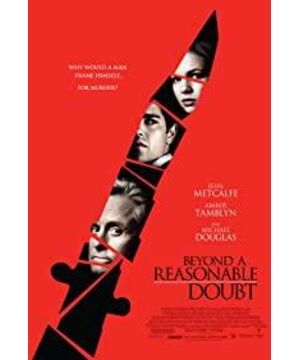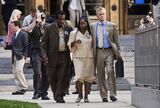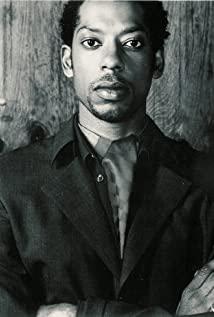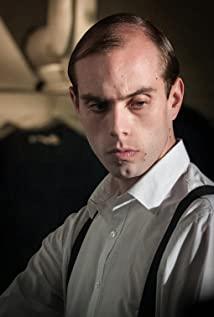In addition, because the film was watched a long time ago, as early as last night, I don't remember all the names of the characters. Fortunately, the relationship between the characters in the film is simple, so use the status of the characters in the film as an identification.
Because the heroine fell in love with the hero, she believed that the hero did not kill, and began to actively investigate the fact that the prosecutor forged evidence and the hero's evidence was actually purchased after the crime. But we have noticed that she used her personal identity throughout the investigation process, which means that the judicial power did not intervene in the case. Of course, she was not allowed to use her position to intervene because of her personal relationship (the protagonist had a close relationship with her). In other words, at this time her right to investigate needs to be questioned first, not to mention the results of the investigation. Let us see the results of all her investigations. First, the actor showed his suspicion to the prosecutor to Boss. Well, this does solve the problem of the actor's motivation to take risks, we will not go into it. Second, the dog of the hero. Well, it was indeed adopted by the Small Animal Rescue Center after the incident, but so what? What can this show? Is this dog biting the hero? Of course I am not studying medicine, but I think I can compare wounds and dog teeth to prove the relationship between the two. Biological tooth marks are like fingerprints, and they all have their own uniqueness. Especially pants, the next one is pants. First of all, the nameplate of the pants was damaged, and it was impossible to prove the production information and the date of purchase. On the other hand, assuming that he is indeed the murderer, I think the protagonist will not take the pants from the time of the real crime to risk it, which obviously does not fit his plan. Another point has to do with the dog-when it bites the pants, there is nothing in the pants-that is, the same side of the pants will leave two rows of upper and lower teeth invading from the opposite sides. Very convoluted, meaning that a dog bites a book and leaves bite marks on the cover and back cover, but bites a piece of paper, it bites it through. In the end, the most important evidence obtained by the prosecutor for forging evidence is left-that photo with a cigarette butt, which was obtained illegally by the heroine through deception and theft. According to the rule of exclusion of evidence, it cannot be used as evidence to protect the justice of the judicial process so as to prevent other innocent people from being harmed. In summary, that is to say, the heroine has not found any effective evidence that can prove that the prosecutor has forged evidence to overturn the prosecutor's defense of the case, let alone overturn the court decision.
Then talk about the use of evidence by prosecutors in court. At the last minute, the prosecutor asked for a new evidence analysis and appraisal, but he did not notify the defendant's lawyer to know, and he suddenly played the card in court. At least, this violates the lawyer's right to know in my opinion. The defendant’s lawyer should have the right to protest such evidence, and the judge should consider the protest valid and consider invalidating the evidence.
Let's look at the evidence that proves the prosecutor's guilt. As I said at the beginning, because the evidence collection process is illegal, the most important piece of evidence is invalid. But the problem is that the prosecutor was stupid and asked his assistant to take the initiative to kill. More importantly, he was dirty and captured. This gave the two a perfect opportunity to investigate his assistant honestly. Of course, it was indirectly involved. In the case of the two people, they can finally point to him. During this period, the heroine of course needs to evade, but I don’t know whether the black uncle can participate in the investigation of the case.
Finally, there is evidence of the guilt of the male protagonist-that is, there is no evidence. What if the DVD and photos can prove that they are the same person? You can suspect that she blackmailed him and eventually caused him to kill her. In the words of the prosecutor, "Where is your evidence?" There is no evidence at all here, let alone a complete chain of evidence. In addition, if I remember correctly, Mi Di’s law requires "kindness", that is, even if the protagonist admits something to you, you can’t be a witness. Then how to prove that he is indeed guilty?
Add a few points:
1. Don't think that Emperor Mi is like mine, for the so-called "substantial justice" you can do everything you want, and you can ignore all ethics and morals in the world. Mi Di will pay great attention to procedural justice, because only by ensuring procedural justice can we truly guarantee substantive justice. The reason is that if only substantive justice is emphasized, the procedure will not be guaranteed. The police officer in charge of the investigation of the case is likely to use various evidence collection methods for his own convenience or subjective judgment, and even force the suspect to prove himself guilty. The result of emphasizing substantive justice is more likely to point to the infringement of the legal rights of more individuals by public power, and make society into a state of disorder because the legal rights of individuals cannot be effectively protected. Although this seems to protect everyone at the micro level, it actually makes more people face legal violations of public power, which is not conducive to social development. Therefore, the United States would rather let go of a possible bad person than hurt a possible good person. This is the origin of the Simpson case and the birth of Miranda's womb.
2. "Kindly conceal each other" means that relatives conceal things that cannot be said to outsiders for each other. This is the most basic ethics of mankind. Relatives should be the ones who should trust each other the most. There can be no secrets between each other, but there are many things that outsiders cannot tell. If the relatives are not hidden, it will lead to mutual suspicion and defense between relatives, and there is no emotional trust in the world. We have tried very thoroughly before this point. Therefore, in ancient my country, even such serious crimes as conspiracy of rebellion required mutual concealment of relatives in order to maintain the most basic ethics.
3. Avoidance. Everyone knows about Bao Heitan's trial of his nephew, and everyone appreciates Bao Gong's move. The question is, how do you know that they are not discussed behind the scenes? Perhaps this case was actually committed by Heitan. In order to defend Heitan, one person in the family stood up for Heitan. Heitan could gain a higher political reputation. This is the theoretical source of acquaintance avoidance-you cannot rely on moral self-discipline to maintain social justice-how can you be sure that things you don't know will happen between acquaintances? In addition, modern avoidance has expanded to include interest.
View more about Beyond a Reasonable Doubt reviews











